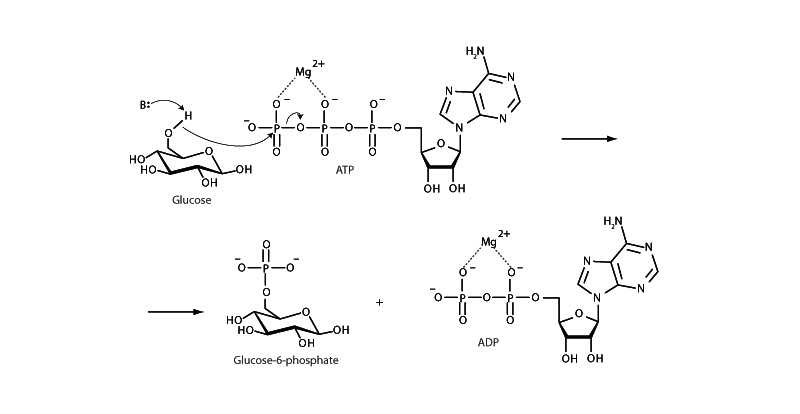
Hexokinase catalyzes the phosphorylation of hexoses such as glucose, mannose and fructose. Hexokinase is a relatively nonspecific enzyme. Glucokinase, the analogous enzyme in liver cells, is specific only for glucose. Phosphorylation by hexokinase makes it much more difficult for a sugar molecule to cross the cell membrane, trapping it in the cell, so phosphorylation commits glucose to one of a number of intracellular processes including glycolysis, the pentose phosphate pathway or glycogen synthesis.
An important feature in the general kinase mechanism of phosphorylation using ATP is the role of magnesium (II) ion as a cofactor. Magnesium ion forms a complex with ATP which helps to stabilizes the transition state during phosphoryl transfer.
